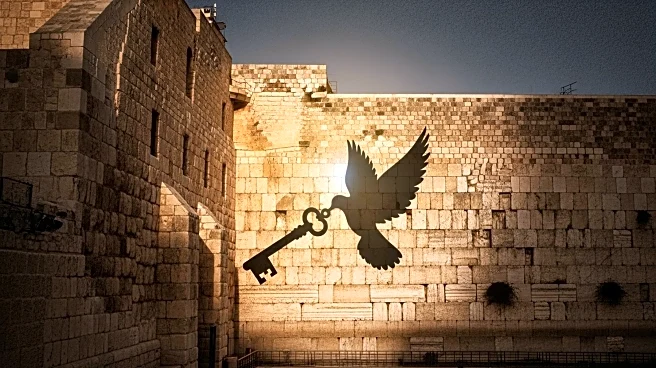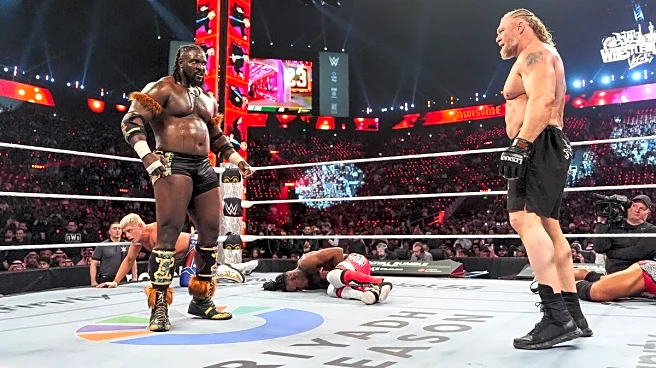What's Happening?
President Trump is currently in Israel to celebrate a U.S.-brokered ceasefire and hostage release deal. During his visit, he is addressing members of Israel's parliament and meeting with families of the hostages. This visit comes as part of ongoing diplomatic efforts to stabilize the region following recent conflicts involving Hamas. The ceasefire agreement has been a significant diplomatic achievement, aiming to reduce tensions and promote peace in the area.
Why It's Important?
The ceasefire and hostage release are crucial developments in the Middle East, potentially easing regional tensions and fostering diplomatic relations. President Trump's involvement underscores the U.S.'s role in international diplomacy and conflict resolution. The successful negotiation of this deal may enhance the U.S.'s standing as a mediator in global conflicts, impacting future diplomatic engagements. Additionally, the release of hostages is a humanitarian victory, providing relief to affected families and communities.
What's Next?
Following the ceasefire, further diplomatic discussions are expected to ensure long-term peace and stability in the region. The U.S. may continue to play a pivotal role in facilitating dialogue between conflicting parties. Monitoring the implementation of the ceasefire and addressing any violations will be critical. The international community will likely watch closely to assess the effectiveness of the agreement and its impact on regional dynamics.
Beyond the Headlines
The ceasefire agreement may influence broader geopolitical strategies, including U.S. foreign policy in the Middle East. It could also affect domestic politics, as successful international diplomacy might bolster President Trump's administration. The humanitarian aspect of the hostage release highlights the importance of prioritizing human rights in conflict resolution.











